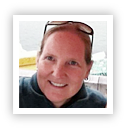 Q: What is the first lesson to learn in becoming a successful documentary filmmaker?
Q: What is the first lesson to learn in becoming a successful documentary filmmaker?
AS: Story. Story. Story. Tell a good story well—and cinematically—and the film world is your oyster.
Q: What do you wish you knew when you started your education in your field?
AS: That you can learn 10 times faster by actually making films constantly than by studying about it.
Q: How do I get the most out of my program at NYFA?
AS: Show up ready to jump in the deep end and embrace the process of film production: working intensively and hands-on with a determination to do whatever it takes to make the best films you’re capable of making at each stage of your development as a filmmaker.
Q: What is the most valuable lesson you’ve learned in your professional career?
AS: Enjoy the process. The rewards and accolades happen rarely, briefly and long after you’re most passionate about the film. That’s good. It keeps you from forgetting that awards and accolades don’t actually matter. Filmmaking is the thing. Exploring life by ferreting out the stories that matter to you and then crafting your film until it takes you and your audience on a powerful, entertaining, and enlightening journey—that is the thing.
Q: Which pieces of equipment do you find most effective in your field?
AS: The human brain. It’s the single most critical piece of equipment a filmmaker works with. The brain—yours and your audience’s—is the most technology necessary to create an exciting, vital, and cinematic documentary. Learn how to maneuver it masterfully and you’ve scored the magic ticket.
Throw in a high-quality, non-intrusive HD camera, a couple of wireless lavalier mics, a shotgun, Zoom or Roland field mixer, and a soft box, and you are ready to roll.
Q: Can I really make a living in this field?
AS: Absolutely. Not only can you begin to make your own documentaries right away, you can earn a good living working in any number of capacities in the business. Recent program graduates are flourishing as directors, producers, associate producers, cinematographers, editors, writers, researchers, production managers, and production coordinators on documentaries, documentary TV series, transmedia content, music videos, and branded entertainment.
Q: Will my faculty be comprised of people who only teach or will I be able to study with working professional filmmakers?
AS: The Documentary Department faculty is comprised of award-winning filmmakers who work at the top of their fields. You’ll study with top documentary-makers of all stripes, including Academy Award winners and nominees, Emmy, Peabody, Telly and major festival winners as well as executives from HBO, A&E, and Morgan Spurlock’s Warrior Poets.